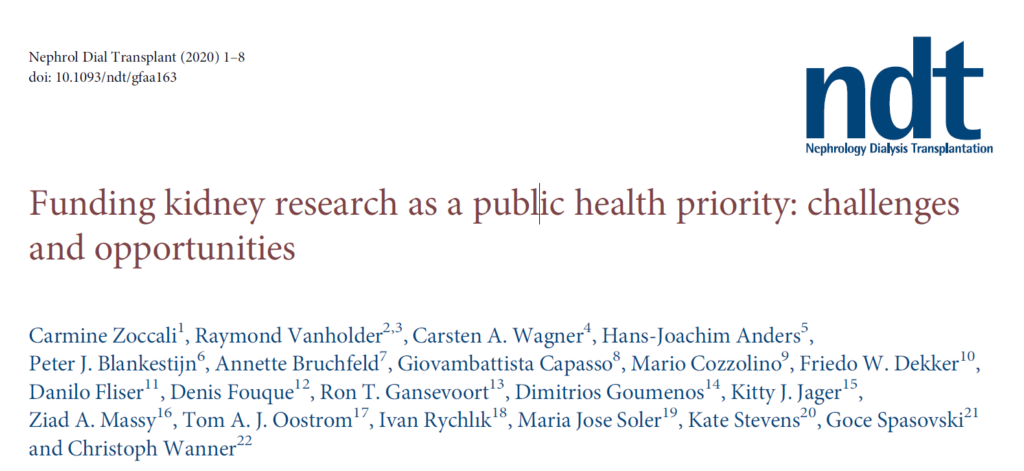
‘Funding kidney research as a public health priority: challenges and opportunities’
9 September 2020
EKHA has contributed to a new publication discussing the challenges and opportunities in raising the awareness of public health authorities on the burden of kidney disease and the need to establish kidney research funding as a priority.
Kidney research remains largely underfunded in Europe. Scientific societies can play an important role in interacting with funding bodies to optimise the allocation of research funding in Europe. According to the article, initiatives making use of solid epidemiological data about the burdens of diseases via large multi-specialty alliances are more likely to be successful than efforts by single scientific or patient associations. In addition, societies dealing with non-communicable diseases (NCDs), inclduing Chronic Kidney Disease (CKD) should join forces in advocacy an research planning when their aims overlap. In the case of kidney disease, diabetes, hypertension and cardiovascular disease traditionally come to mind, but cancer, liver disease and even pulmonary disorders are also linked to kidney disease. Efforts should not be restricted to traditional basic and clinical research topics, but should also cover health economics, patient quality of life and prevention.
The article focuses on EKHA member ERA-EDTA as an example of a society that has adopted this approach to increase funding for kidney research in Europe. Via EKHA and other EU-level advocacy alliances, ERA-EDTA strives to achieve broader recognition by the EU and national agencies that kidney disease, and a related clusters of NCDs, are major threats to the qualities of life of their populations and economies.
Whereas acute problems, like the current COVID-19 epidemic, necessitated immediate and transnational action, it should be noted that those most severely affected by COVID-19 have been those with comorbid conditions, namely non-communicable diseases and in particular, those patients with CKD. Thus, it is essential that these diseases gain the attention that they deserve.
You can access the full article here.
